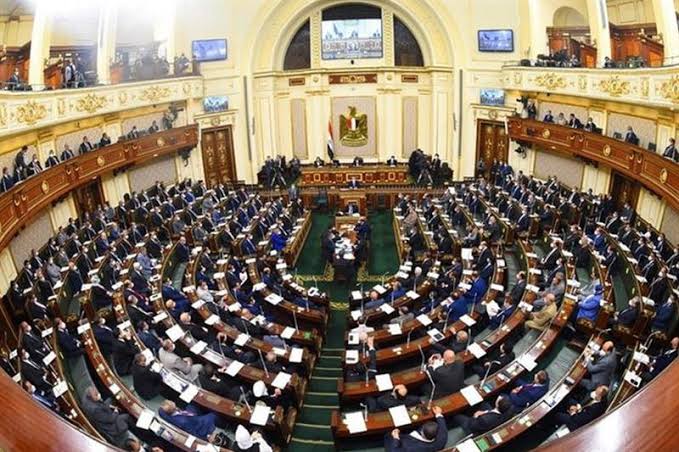Minister of Planning and Economic Development, Rania Al-Mashat, announced that Egypt is on track to finalize its foreign direct investment and industrial development strategies in the first quarter (Q1) of this year. She also forecasted a 4% growth for the Egyptian economy in the current fiscal year.
Al-Mashat made these remarks during an in-depth meeting with the National Press Authority, chaired by Abdel Sadek El-Shorbagy. In her comments, Al-Mashat noted that the private sector has secured $14.5bn in concessional development financing from international partners between 2020 and 2024.
She further revealed that negotiations are underway with the European Union and other international partners for a second phase of macroeconomic support and budget aid, totaling €4bn, along with €1.8bn in investment guarantees. Al-Mashat emphasized the government’s commitment to managing investment spending, with a public investment cap set at EGP 1trn, prioritizing projects that are over 70% complete.
El-Shorbagy underscored the Ministry’s crucial role in overseeing public investments, empowering the private sector, and fulfilling the government’s vision for a competitive, investment-friendly economy. He acknowledged the significant internal and external challenges the Egyptian economy is currently facing.
Al-Mashat elaborated on the Ministry’s vision and strategy following the merger of the planning, economic development, and international cooperation portfolios, which aims to foster sustainable economic development and enhance both the quantity and quality of growth. She detailed the Ministry’s newly launched sustainability and finance framework, designed to strengthen evidence-based policies, optimize resource allocation, and close sectoral development gaps. This framework is aligned with Egypt’s Vision 2030, the National Structural Reform Program, and the National Integrated Financing for Development Strategy.
The Minister revealed that, in partnership with the World Bank and relevant ministries, Egypt is working to complete the integrated strategies for both foreign direct investment and industrial development by the end of the first quarter of 2025.
She also addressed the growth of the domestic economy in the first quarter of the fiscal year, which saw a recovery to 3.5%, driven by structural reforms implemented since March. Notably, the non-petroleum manufacturing sector grew by 7.1% during the period, marking the highest rate since Q3 of fiscal year 2021/2022. Exports increased due to streamlined customs procedures and expanded manufacturing activities, though sectors like extractive industries and the Suez Canal faced challenges due to regional tensions. However, the extractive sector is expected to recover with the settlement of dues to petroleum companies and the completion of exploration activities.
Tourism grew by 8.2% during the same period, a result of government efforts and the opening of the Grand Egyptian Museum.
Al-Mashat also highlighted that private sector investments grew by approximately 30.1%, totaling EGP 133bn and accounting for 63.5% of total investments, while public investments fell by 60.5% to EGP 99.7bn compared to the previous period.
She discussed the Ministry’s oversight of the National Program for Economic and Structural Reform, which focuses on strengthening macroeconomic stability, diversifying the economy, enhancing competitiveness, and supporting the transition to a green economy. The program has implemented 86 structural reforms so far. Additionally, the government secured financing from development partners, including the EU and the World Bank, and is negotiating the second phase of macroeconomic support with the EU.
Al-Mashat also pointed out that total investments in fiscal year 2023/2024 amounted to EGP 1.62trn, with private investments increasing by 5.3% to EGP 700.4bn. The government aims to increase the private sector’s share of total investments to 50% by the end of the current fiscal year, with a focus on local development and prioritizing investments in underserved governorates.
The Minister stressed that, due to government efforts to create an enabling environment for private sector investment, concessional financing for the sector surpassed government financing in 2024, reaching $4.2bn. Between 2020 and 2024, total financing for the private sector amounted to $14.5bn, directed toward sectors including technology, innovation, manufacturing, health, green transition, and transport and logistics.
Al-Mashat also discussed the National Platform for the “NWFE” program, which has secured $3.9bn in financing for renewable energy projects with a capacity of 4,200 megawatts, and decommissioned 1,200 megawatts of thermal energy plants. She emphasized that the platform helps promote renewable energy projects and attract private sector investment, including financing provided by the Japan International Cooperation Agency (JICA).
In addition, the Ministry is working to improve government spending efficiency and public investment effectiveness. The 2024/2025 investment plan aims for nearly EGP 2trn, with EGP 1trn allocated to public investments and the remainder to private investments. Over two-thirds of public investments will focus on human development and water and sanitation projects.
The Ministry has begun preparing the draft for the 2025/2026 Socio-Economic Development Plan in line with the mid-term budget framework. Al-Mashat also highlighted ongoing efforts to restructure the National Investment Bank and settle debt with key institutions such as the National Bank of Egypt and Egypt Post.
Finally, the Minister spoke about the government’s efforts to support entrepreneurship and start-ups, with a focus on creating a knowledge-based economy. The Ministry is also overseeing the Presidential Initiative for the Development of Egyptian Countryside, “Decent Life,” the largest such project globally, which aims to improve living conditions for rural populations. The initiative has already benefited 18 million people in 1,500 villages, primarily in Upper Egypt, with an investment of EGP 350bn.
Al-Mashat also noted the Ministry’s oversight of 54 joint committees promoting economic cooperation and opportunities with other countries.





















Discussion about this post